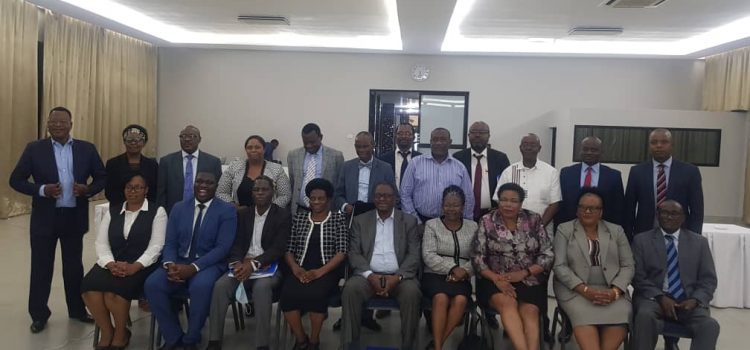The Judiciary of Zambia in collaboration with the International Labour Organisation (ILO), is holding a sensitisation workshop for Hon. Judges of the Superior courts on International Labour Standards. The workshop which is taking place in Kabwe from Monday 23rd November 2020 to Thursday 26th November 2020 is being held under the theme “Sensitisation of Judges to International Labour Standards”
Among the topics to be covered are: International Labour Standards with Particular Focus on Termination of Employment, Non-Discrimination and Freedom of Association and Collective Bargaining; the ILO Supervisory Mechanisms; The Impact of COVID-19 on International Labour Standards and; The Notable Changes to Employment Law in Zambia in the Wake of the Enactment of the Employment Code Act.
Making the key note address on behalf of the Hon. Chief Justice, the Deputy Chief Justice, Hon. Mr. Justice Michael Musonda SC expressed gratitude to the ILO for the support offered to Zambia in general and to the Judiciary over the years in the area of labour related sensitization and that the story of the evolution of justice for the working people in Zambia cannot be told without the mention of the ILO.
He said “as an institution, the judiciary places a great premium on the services that we offer, both in qualitative as well as quantitative terms. Zambia has ratified 48 conventions that have a direct bearing on employment law and labour law in Zambia, and some of our legislation has been inspired by these conventions. International labour standards are important because they constitute the benchmark of labour standards that help interpret ambiguous legislation, and globally, everyone either professes or yearns to do things in accordance with standards that meet international best practices”.
In his remarks, the ILO Country Director Mr. George Okutho said that the sensitisation workshop presents a unique opportunity to discuss and exchange experiences regarding international labour standards.
He added that the field of international labour law is subject to many challenges in a world characterised by increasing globalisation and by numerous sources of social unrest fueled by increasing income and wage gaps, amongst others.
He emphasised that the mandate of the ILO, created a century ago, is to promote social justice without which universal peace is seriously under threat, and that a journey back in history shows that our current context presents similarities to those that prevailed both prior to the creation of the ILO and to the Second World War and that we should be aware of this in order to draw lessons from history.
Speaking during the introductory remarks, the Chairperson of the Advisory Committee on Training and Continuing Education, Mrs. Justice M.S. Mulenga stated that the workshop was a build-up from an initial one held in Livingstone in May 2017.
She went on to say that it was expected that the workshop would provide a platform for the judges to examine the International Labour Standards and their application in the resolution of labour disputes.







